
OR

They started out as engineering students who ventured into business when they couldn’t find t-shirts similar to those worn by Sheldon Cooper and Leonard Hofstadter in The Big Bang Theory. Now, Threadpaints is one of the leading online apparel stores in Nepal that caters to both men and women and has both local and international brands. They also have products under Threadpaints Original that are designed and manufactured by the in-house team. The co-founders Aashish Acharya and Sabin Bhandari also recently made it to the Forbes 30 under 30 list. The Week had them share their story as well as many nuggets of wisdom, including why hard work and determination are important, what to do when everything looks bleak, and how success goes hand in hand with sacrifice.
How it all began
Being a millennial generation, they grew up watching series like The Big Bang Theory where the protagonists wore t-shirts with really cool prints. They too wanted to wear such clothes. But despite spending an entire day at New Road searching for something similar, they would either return empty-handed or with things they didn’t really like.
During the beginning of their fourth year at engineering college, three friends got together and discussed the idea of running their own business. It was mostly their combined dislike of having to spend the day going to a shop to buy their clothes and apparels that pushed them to pursue their idea of an online store.
“We were all studying computer engineering, so we knew how to build an online store, and we had some PR skills too back then,” says Bhandari. They knew their friends would be thrilled to buy customized t-shirts and would become some of their loyal customers in the years to come. The first design they came out with was the Windows 8 t-shirt followed by a Pink Floyd t-shirt. Both of these shirts sold out rapidly and made the co-founders realize that they were on the right track. “Even back then, we knew we didn’t just want to be a store that sold t-shirts. We wanted to start an online shopping trend in the country,” he says.
They didn’t start their business by creating hype around it or by marketing it. They designed the webpage for Threadpaints and then created a Facebook page too. When they posted new items on their website, they posted it on Facebook as well. Slowly, word got around about their idea and their designs and the likes on their page kept increasing. But even though almost all of their designs were getting sold out and fast, they still weren’t very serious about their business.
Taking it seriously and the challenges that came with it
A Deep Purple concert was what made them serious about Threadpaints. The concert was scheduled to take place right after their exams so even during the exam time, they found themselves running around trying to first partner with the organizers to make the t-shirts and then to sell those t-shirts. All the three co-founders were on top of their class and had never had to deal with failure. “The business was doing as well. We were selling about five to seven t-shirts a week. But with this concert we decided to become ambitious,” says Acharya. Their target for the concert was to sell 500 t-shirts, and that was a big leap for them. They came up with attractive sounding group schemes that let you purchase the t-shirts and tickets together. They made some compromises and some sacrifices.
There was a three-day gap between each exam and Acharya recalls having spent the first two days meant for revision selling concert tickets. “Digital signal analysis and processing was one of the hardest subjects and many failed. But we thought we were above that and we would at least pass the paper,” he says. But one day of revision wasn’t enough and they failed the exam. Their credible track record was breached and building that back up again was harder than they imagined.
They faced another loss in 2014 when one of their co-founders, Aayush Shrestha, decided that he didn’t want to be a part of the team anymore and parted ways. The determined duo, however, continued to work and build on their ideas.
Their first investor
On the day of the results when they hadn’t even processed the fact that they had failed their exams, they got the news that the concert too had been cancelled. Not only had their track record been spoiled but they had lost all their money. However, while they were going around pitching the sales ideas for the concert, they had approached one of their teachers, Manoj Ghimire. Although they originally went to sell their products, he had other things in mind. Interested in what they were doing, he asked them many questions about their business. The questions were along the lines of sustainability of the idea, whether it would grow or not in the future, and whether they were really serious about it.
“He told us that if we are really serious about Threadpaints we would need to start looking like a legitimate business,” says Acharya. He wanted them to register their business, and decide on office hours too. They followed his instructions and registered their company but they couldn’t find an office space they could afford. They were already at a loss of over a hundred thousand rupees and in debt as well, they didn’t have much to spend.
At the end, they worked things out with Ghimire who, after having them go through a thick booklet of conditions, gave them a convertible equity investment as well as a workspace. They worked out of one of Ghimire’s offices and paid Rs 5000 in rent every month. This fully furnished office had internet, and an unlimited supply of coffee too. Then, they finally hired a person to work for them and their business started to pick up.
Lessons learnt
Throughout their idea generation process and most of their journey, their main focus was Kathmandu. However, one of their biggest learning experiences was when they received a bulk order of Rs 13,000 from Mustang. The order included shoes, pants, t-shirts, and a variety of other apparels. The staff member were all confounded and didn’t believe that the person would come through when he asked for their bank account number in order to transfer money into their account. The frenzied rush that started ten minutes later when their account was credited with the money is one no one at Threadpaints is likely to forget.
“We have been living under the illusion that people out of the valley live a marginalized life and don’t take them into account when planning things. I remember how dazed we felt after receiving the money, trying to figure out a way to get the order to Mustang,” says Bhandari. After that situation, they now have things figured out and offer free shipping all over the country. While they don’t have a return policy as such, they don’t accept everything that has been returned. “There have been times where people have tried to return dirty clothes and even clothes that have been worn once and washed,” says Acharya. In the beginning they would never check the products carefully, but now they thoroughly inspect the material and take some circumstances into consideration before accepting returned apparels.
Making it to the Forbes 30 under 30 list
In the last four years, Threadpaints has become more of a market place than just an online store. They have evolved into an apparel store that sells not just their own designs and products created by their sister store Butta, but sells a horde of other brands too including Vans, Goldstar, Sarga and Wildcraft bags and loafers.
“When people hear that we made it to the Forbes 30 under 30 list, they just see the ‘fame’ part of it. What they don’t realize is that we have had to work really hard to get to where we are,” says Bhandari. Their parents had no idea what the Forbes list was, and brushed it off when they mentioned it. In Bhandari’s case, it wasn’t until people began congratulating his mother that she really realized its significance.
“On the day we got the notification email, we were so busy that we hadn’t had a chance to check our email properly. When we talked on the phone, we brushed off the email. Both of us were on 3G and the email took too long to load. We didn’t have the patience or the time to wait,” says Bhandari. It was much later in the evening when they finally got around to reading the email properly that they were confronted by a pleasant surprise.
They hadn’t planned on telling anyone about it. When Acharya’s brother found out wanted him to tell their parents, he did so reluctantly, not wanting to make a big deal out of it. It wasn’t until he woke up to emails and many notifications (and even a missed call from an investor who had rejected them just the day before) that he realized this wasn’t something that they would be able to hide.
The next step
The plan now, after making it to the Forbes list, is to continue doing what they are doing. “We made it to the list not because of what we do now but because of what we have been doing for a long time. We think that if we keep sticking to our plan, there is nowhere to go but up. Right now we are focused on expanding our business and are thus looking for a growth capital to help the business boom,” says Bhandari.
Also, according to them, many people really understand the online business culture. When people order from Amazon or eBay, they are willing to wait up to 45 days. Even those in the USA have to wait for five days. “But here, when the product isn’t delivered within a day of the order placement, people start posting on our walls. I don’t think they realize the amount of back work we have to do in order to get the product on screen to their doorstep,” says Acharya, adding that they are working on sorting out any glitches and also trying to make deliveries quicker. “Anything to become better,” he concludes.
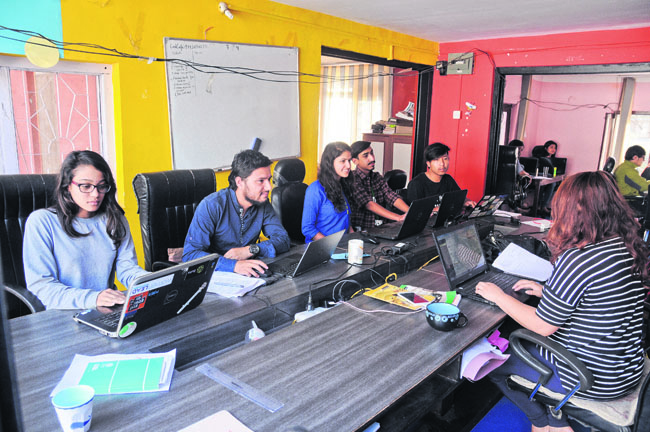
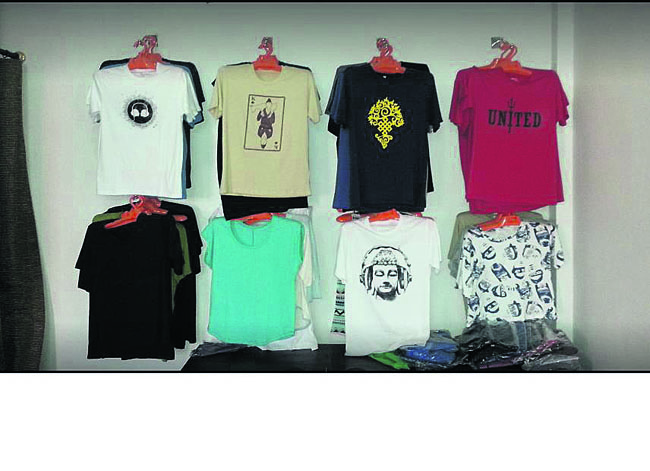
You May Like This

Cardamom farming: A success story from Kavre
KAVRE, June 11: Some years back, locals of Rayale Lamidada, Panauti-1, in Kavrepalanchok district had no choice but to visit nearby... Read More...

Ishan R Onta shares his story on Radio Nagarik
“Holidays during Jana Andolan II became an opportunity to learn guitar for me,” says Ishan R Onta, “I was introduced... Read More...

A Relic of Love A story of Majipa Lakhey’s love
KATHMANDU, April 16: The best part of being an artist is that people can express their deepest feelings through art. Most... Read More...
Just In
- KMC to organize a month-long skill fair from May 1
- Birgunj Metropolis collects over Rs 360 million in revenue
- NEPSE plunges below 2,000 points after one and a half months; daily turnover declines to Rs 2.10 billion
- AI Index Report-2024: AI still behind humans on complex tasks like competition-level mathematics
- Daiji-Jogbudha road construction at snail’s pace
- Govt fails to adopt podway technology despite its potential in Nepal
- Jhulaghat border crossing in Baitadi to remain closed from this evening
- Universities will be free from partisan interests: Education Minister








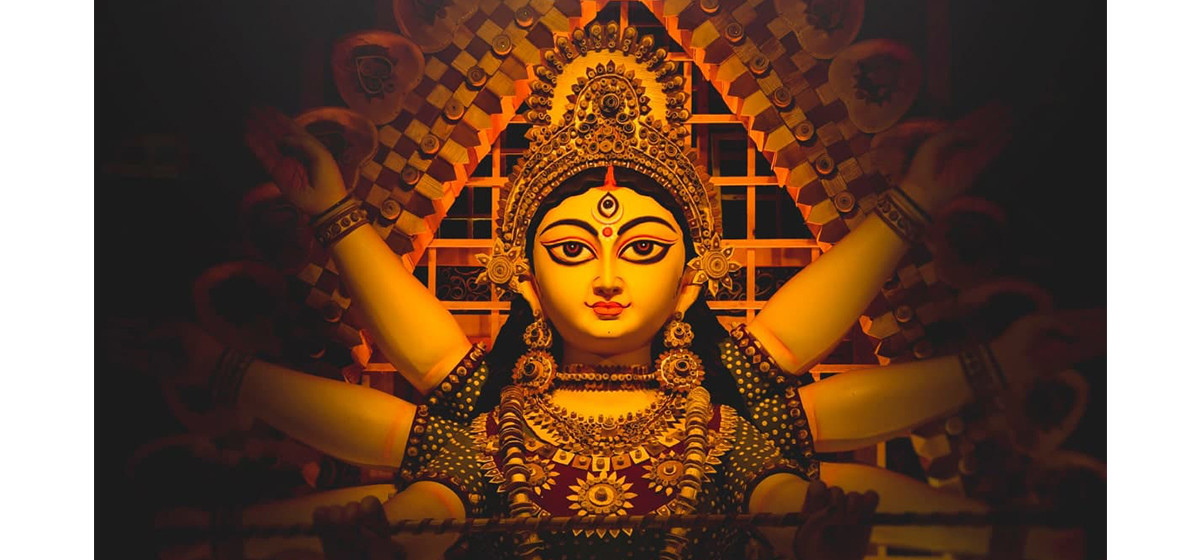



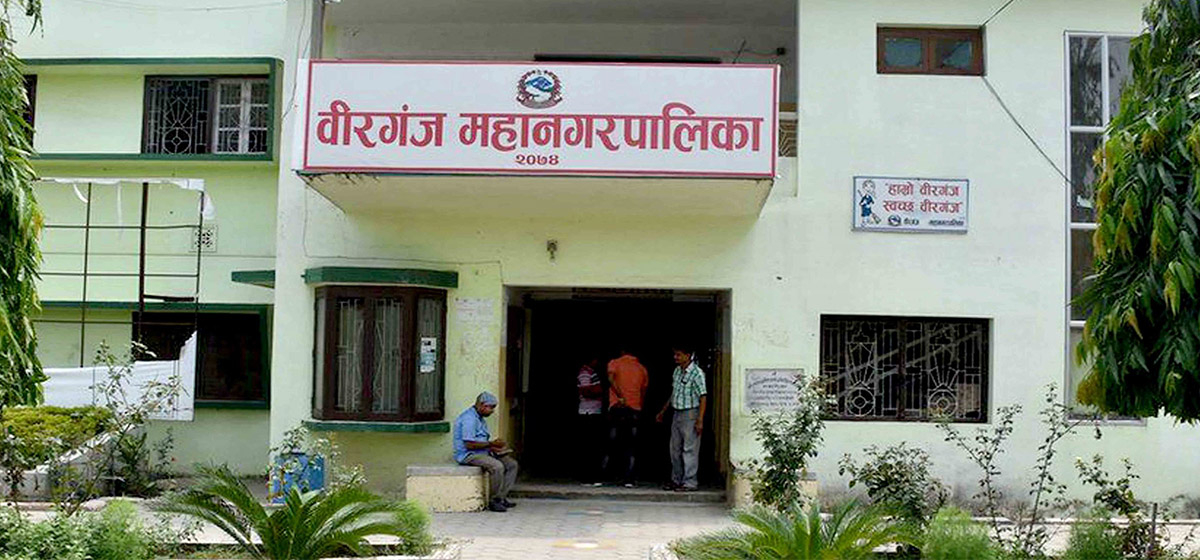




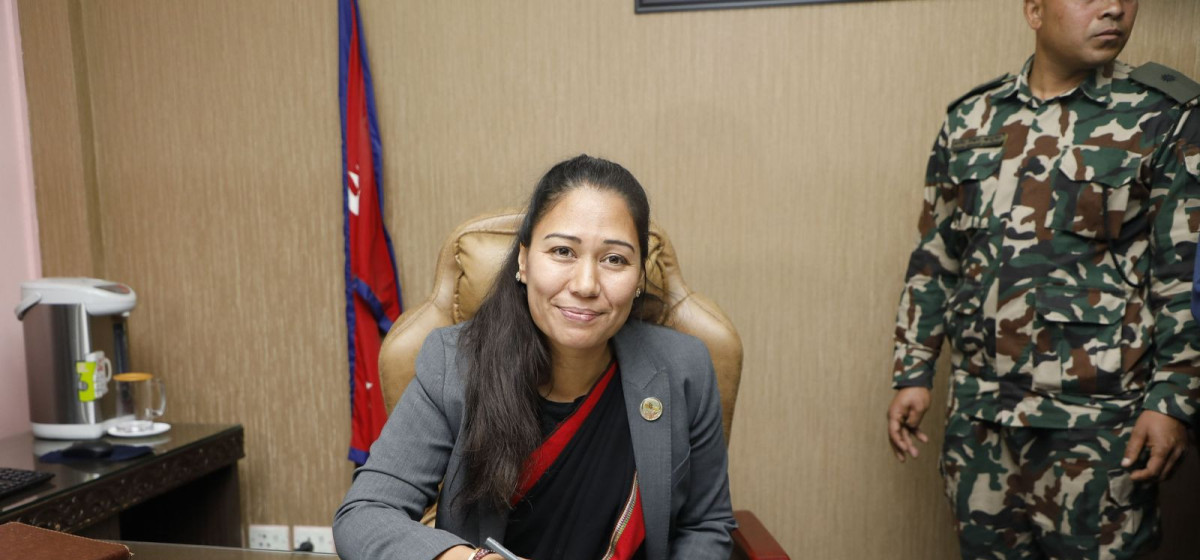
Leave A Comment